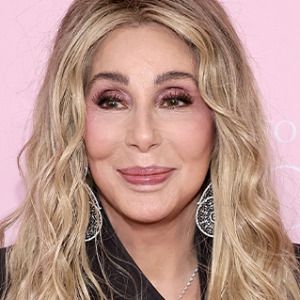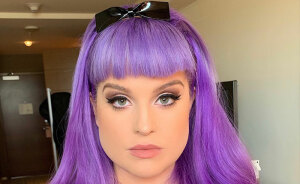Comparing things is something we naturally do. Whether it's looking at how things are now versus how they used to be or comparing the world today to the past, it's a common human tendency.
Today, we've got some interesting comparisons that might change how you see the world. We're not just talking about now and then; there's much more to it. We'll compare lightsabers of different prices and show how fully grown cats can look very different from each other. Get ready and check them out! And if you like any of them, don't forget to upvote!
This post may include affiliate links.
Then And Now: Cancer Patient vs. Cancer Survivor
People often compare themselves and others in areas like looks, money, intelligence, and success. Studies suggest that about 10 percent of our thoughts involve these kinds of comparisons. The social comparison theory, developed by psychologist Leon Festinger in 1954, says that we judge our own worth based on how we stack up against others. However, constant comparisons can not only lead to motivation for improvement, but can also result in feelings of dissatisfaction, guilt, or even harmful behaviors like lying or unhealthy eating.
One Year Of Good Care And Love
10 Year Old Me vs. 25 Year Old Me
When people compare themselves to others to track their personal growth or get inspired to do better and build a more positive self-image, it can be a good thing. But it's important to be careful not to fall into the trap of making negative comparisons. Who we compare ourselves to matters a lot: If we just want a self-esteem boost, we tend to compare ourselves to people who are worse off than us, but this can become unhealthy. When we aim to improve, we often compare ourselves to peers who are similar to us but excel in a specific area.
My 10 Year Progress Pic To Becoming An Rn
Elliot's Owner Shares What He Looked Like At 4 Weeks vs. Full Grown, With His Favorite Toy
First Portrait I Ever Did Back In 2011 vs. Most Recent Portrait From 2021, It's Been A Long Journey
Using our social connections to drive progress can be really effective. For example, in a study, friendly competition motivated people to exercise more because they encouraged each other to do better. This "social ratchet effect" meant that each person's effort inspired others to step up. On the other hand, social networks where people simply offered positive support were not as helpful.
The Day After Asher Was Adopted In 2012 vs. Today
Man Shares Picture Before And After A Liver Transplant
How It Started vs. How Its Going
People tend to make two types of comparisons: upward and downward. In upward comparisons, we measure ourselves against those we perceive as better in some way, while in downward comparisons, we do the opposite. As expected, research shows that downward comparisons tend to boost our self-esteem, but both approaches come with risks – upward comparisons can lead to feelings of insecurity and jealousy, while downward comparisons can foster overconfidence and arrogance.
That Is A Wonderful Accomplishment And Much Harder To Achieve Staying At The Same Company
From A Little Bean To A Majestic Queen
My Wife’s Face On Our Wedding Day Compared To When She Met Rob
Theodore Roosevelt once referred to comparison as "the thief of joy," and his observation might hold some truth. Social comparison can be a source of motivation for self-improvement, but it can also encourage judgmental, biased, overly competitive, or superior attitudes. Most people have the social skills and self-control to keep their standards for social comparison to themselves, refraining from acting on any envy or resentment triggered by making comparisons. However, their true feelings may surface in other ways.
Adding The Backstitches To My Cross-Stitch Embroidery
We Have Two Skinny Cats, And One Fat One
The Difference 11 Days Can Make For This Maple Tree
Comparisons tend to make us feel bad when we only measure ourselves against people who excel in certain qualities. For instance, when we think our social lives are less active, we often compare ourselves to the most social people we know. Recognizing this bias can help us make more realistic and motivating comparisons.
My Client Asked To Make This Rug With Her Rats
B2 Stealth Bomber Compared To A Falcon
My Brother And His Friend, Both Age 13. We Loved The Difference In Height
Spending too much time on social media, where we see images of exciting events, can lower self-esteem and contribute to feeling down. However, these risks seem to affect mainly people who are very anxious, while some studies suggest that social media can actually boost self-esteem, especially when we look back at our own happy moments with friends.
From Broken Legs To Long Legs
Summer Body vs. Winter Body
Size Comparison Of My Maine Coon To My American Shorthair
To be less affected by painful comparisons, pay attention to what triggers this behavior, practice deep gratitude for the good things in your life, and remember that wanting what others have is often a waste of time unless it's something truly valuable, like their kindness or generosity.
Smoker vs. Non-Smoker
Ski Trail Sign In Summer vs. In Winter
Visited The Same Model Village 25 Years Apart
In the end, it's not about comparing ourselves to others; it's about becoming the best versions of ourselves, cultivating self-acceptance, and finding contentment in the journey toward personal growth and fulfillment. Check out our previous editions on cool comparisons.

 Dark Mode
Dark Mode 

 No fees, cancel anytime
No fees, cancel anytime 

















































































































